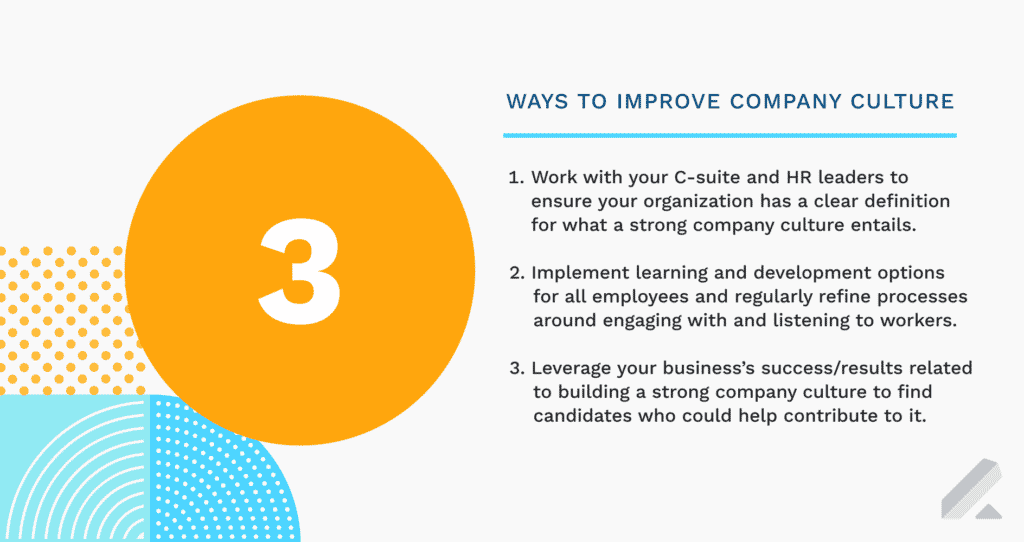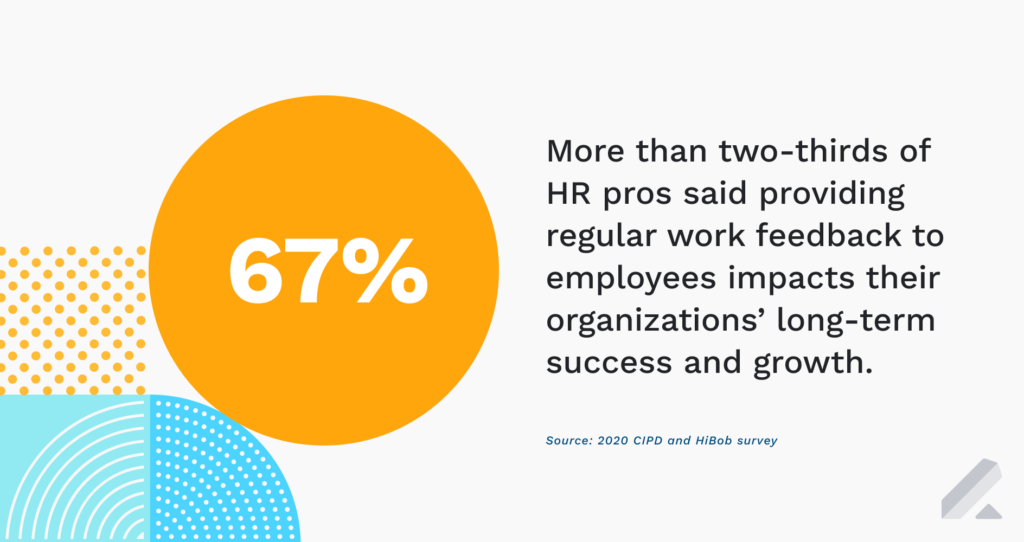Employee morale is a challenge for organizations of all sizes and kinds these days, due to a range of factors: from ongoing changes to the work environment and workplace culture post-pandemic, to persistently uncertain labor market and general economic conditions.
In short, human resources and other business leaders are seeing a marked rise in stress-related and well-being issues with their employees, all of which considerably affects morale.
For example, in the last few years, you may have noticed a:
- Decrease in energy and excitement among one or more teams at your business
- Lack of interest in taking on or joining various projects, campaigns, and initiatives
- Decline in output and productivity for certain employees with time-intensive roles
- Reduction in workforce sentiment, due to multiple layoffs and/or hiring freezes
No matter the cause of these morale, only a proactive response from executives, HR leaders, and people managers will ultimately improve morale and, in turn, make your org one where employees not only thrive, but are happy to be a part of and want to help drive growth.
You know the importance of employee morale to your business.
Now, it’s time to learn how you can boost worker satisfaction — and it all starts with securing and taking action on employee feedback using proven processes and tech platforms.

15 tips to help you boost employee morale
While you may not have complete control over what’s going on in the broader scope of your company, you can foster an environment that’s more productive for your own team.
Get started with these tried-and-true tactics that can boost your employees’ morale.
1) Use the right tools
Leading companies (i.e., those with satisfied and productive workers) understand they don’t just need to provide their teams with the right solutions to execute in their day-to-day, but also tech to help them boost employee morale.
Using Slack to provide shoutouts, leveraging pulse surveys to gauge workforce sentiment, rewarding employees for hard work by sending them gift cards via gifting platforms: There are many tools you can utilize to check in on, secure feedback from, and recognize your workers.
2) Communicate often
Communication is more important than ever for C-suites and people managers, especially given the rise of remote and hybrid work — a development that not every business professional (as you may have noticed) feels comfortable with.
Take the lead comms-wise by regularly sharing company updates and announcements, like product releases, awards the business won, and upcoming events (e.g., conferences, webinars).
Sharing these updates can help you gradually realize more positive employee morale among your workforce — particularly remote employees who may feel disconnected at times.
3) Recognize employees
When employees feel truly appreciated, recognition can incentivize them to bring their best selves to work, become more productive employees, and improve their job satisfaction.
“Workplace recognition motivates, provides a sense of accomplishment and makes employees feel valued for their work,” according to recent research from Gallup.
“Recognition not only boosts individual employee engagement but it also has been found to increase productivity and loyalty to the company, leading to higher retention.”

4) Secure feedback
When you show employees you’re listening to their thoughts, ideas, and concerns, they’ll feel heard and be more motivated in their respective roles. But, it isn’t enough just to collect feedback.
You need to act on it as well.
Even if you don’t take every single comment into consideration with your ultimate plan to make changes large and small to your org, thank employees for sending in their suggestions.
5) Provide growth opportunities
It doesn’t have to be a job promotion, necessarily. Growth opportunities could also mean providing access to courses or conferences that can help workers gain new expertise.
Offering these opportunities is a key part of the employee experience — and, when executed well, can lead to consistently high employee morale across your entire company.
The more your workforce knows they can advance their careers and learn new skills, the more likely they are to regularly engage with colleagues — and remain at your business.
6) Focus on company culture
The days of managers pushing themselves and their teams to the limit are long gone.
As you consistently work on improving your company culture, your goal should be to reduce stress, maintain a healthy work-life balance, and encourage a psychologically safe workplace where leadership is cognizant of burnout and make an effort to help workers as needed.

7) Organize team-building activities
Team-building leads to more collaborative and motivated work cultures, aids problem-solving among team members, fosters meaningful and open communication among peers, and leads to creativity and out-of-the-box thinking.
During the onboarding of newly hired staff members, this can be a particularly effective way to ensure high employee satisfaction right out of the gate, so to speak.
8) Provide employee incentives
Offer employees with incentives that empower them to do their best work. For example, you can develop a program that helps your employees evolve personally and professionally.
9) Encourage breaks and time off
Research has found that a mere one in five people takes a lunch break and that white-collar workers are actually the least likely to take a break. That means that there are far too many staff members eating lunch at their desks.
We know that creativity and innovation happen when people change their environment, and especially when they expose themselves to a nature-like environment.
Encourage your employees to get away from their desks, at least for a few minutes every hour. Tell them to grab a cup of coffee or take a walk outside for some fresh air.

10) Promote workplace diversity
By promoting workplace diversity, your employees will feel and understand that thinking outside the box and sharing unique experiences are an asset to the company.
Diverse employees can bring together their different talents, experiences, and various skillsets to come up with creative solutions, whereas another group made up of people with similar backgrounds and skill sets may decide to solve a dilemma in the same way they always have.
11) Showcase your values
Your employees are part of something bigger than themselves. But, do they know it?
From the application process, to their first interview, and all the way through to the offer stage and beyond, potential candidates and existing employees need to know and share in the vision of what you are doing as an org.
That vision alone will motivate and inspire your team, right down to its junior members, which comes back full circle in effectively facilitating long-term company growth.
12) Promote work-life balance
One in five U.S.-based workers spend five hours at work each week stressing about health, finances, and family. That’s five hours of morale-sinking anxiety every week.
The fix? Treat your employees like human beings whose personal lives are just as important as their professional ones. Flexible hours, paid time off, conversations about self-care, and work-from-home policies help workers address those real-life needs at home.
This frees them up to bring their best energy to work — and morale will soar.

13) Be flexible with schedules
Talk regularly with your team to discover their preferred weekly work schedules. You won’t be able to work around everyone’s schedule all the time.
But, being flexible can help your staff strike the ideal work-life balance that keeps them productive on the job and healthy outside work hours.
14) Learn from each other
Remind your team routinely that it comprises individuals who bring diverse skills to the whole group. This can help you tap into the underutilized creative talents of your employees and give them the chance to shine in a way they haven’t before.
Host a rotating “skill-share” where a team member presents an untapped skill to the group. Or, use team meetings as a way of introducing a new capability a staff member taught you.
15) Encourage random acts of kindness
During onboarding, ask new hires about their “favorites” (e.g., candy, flower, sports team). Keep this info on file, and use it during holidays, team celebrations, and for employee recognition.
Watch our on-demand webinar today to find out why employee fulfillment must be a focal point for your business leaders to boost workforce satisfaction and retention.



